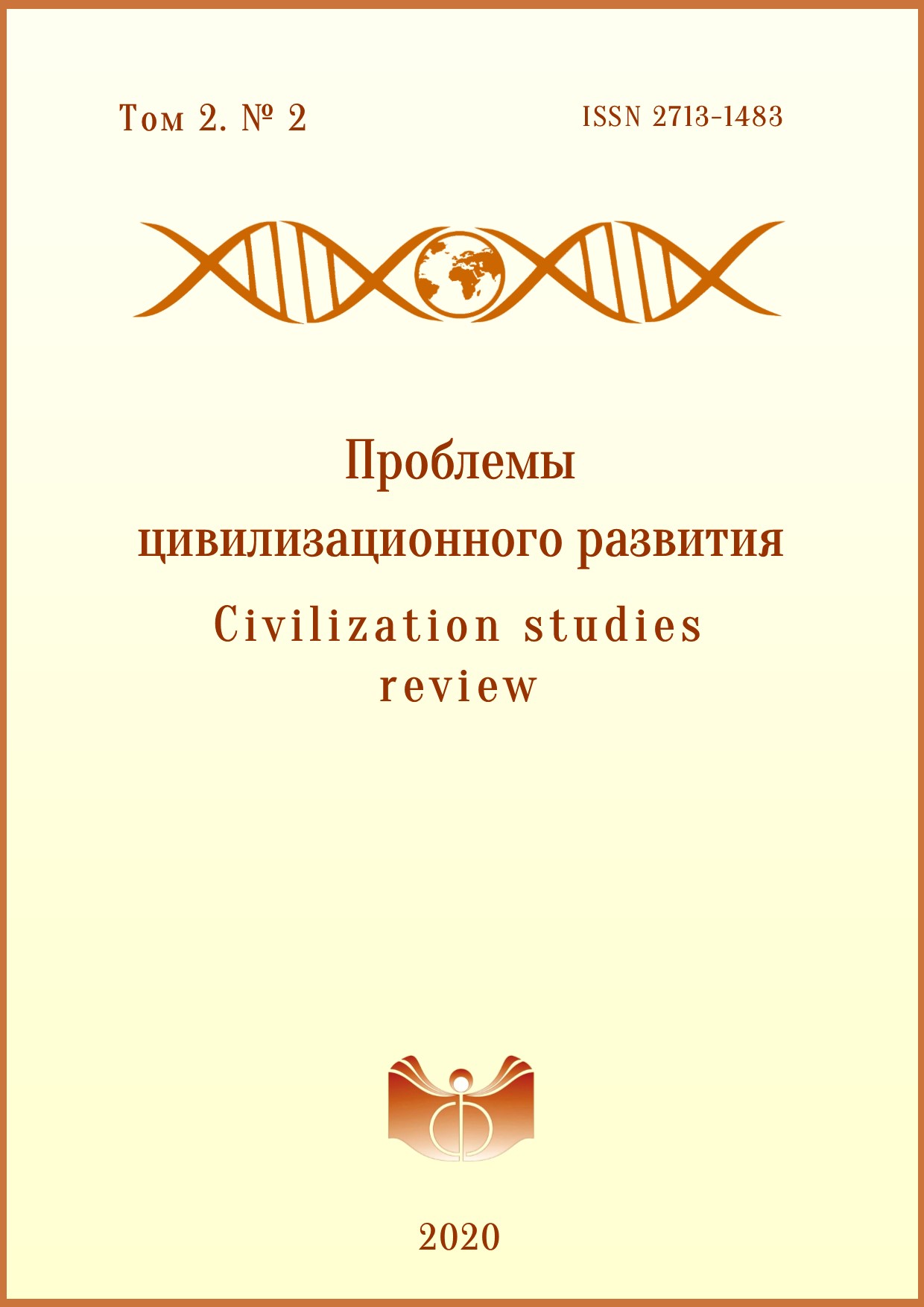“Civilizational approach”. Formation and evolution
DOI:
https://doi.org/10.21146/2713-1483-2020-2-2-65-85Keywords:
state, ideology, modern, modernization, transcendence, kingdom, civilization.Abstract
The article analyzes the formation and evolution of the “civilizational approach” to the analysis of human history in the domestic and foreign discourse of the 20th – early 21st century. According to the author, the most significant results in the theory of civilizations and their comparative study were obtained in the 20th century in foreign studies and were associated with the names of A. Spengler, A. Toynbee, F. Brodel, P. Sorokin, K. Jaspers and S. Eisenstadt. If Sorokin was able to solve the problem of distinguishing between “cultural supersystems” and “civilizations”, then Eisenstadt’s work marked a breakthrough in three areas of research: the theory of civilizations, the theory of revolutions, and the theory of modernization. All three areas of research in Eisenstadt’s legacy have been linked by more general understanding of human history as a variety of ways of civilizational development, in the context of which revolutions and modernization are considered as immanent characteristics of this process. But this conceptual innovation of Eisenstadt for a number of reasons was underestimated in the civilizational discourse of the late 20th century. And Russia, under the pen of some domestic theorists, has become a “barbaric civilization”: a stronghold of “Manichaeism”, “chiliastic consciousness”, “archaic collectivism”, “totalitarianism” and “Eastern despotism”. Under the cover of some supposedly inherited “cultural codes”, this theoretical oxymoron of “barbaric civilization” still roams the pages of our publications.
Its epistemological premise is a controversial postulate borrowed from F. Braudel about the immutability of “civilizations” as some long-term “structures” based on “cultural traditions”. The latter allegedly “digest” the inevitable socio-cultural borrowings and their own innovations, driving many peoples and countries into “dead ends” of historical dynamics, forcing them to reproduce the cycle of “reform – stagnation – counter-reform” from century to century. Of course, the history of our country provides many examples for this interpretation. But other theoretical optics are also possible, based not on structural, but on a procedural and non-linear understanding of human history. In this case, the latter is interpreted as a multi-vector movement of integration: from simple communities to increasingly numerous and more complex (politically, culturally and ideologically) integrated associations of people, the largest of which can be defined as “civilizations”.
The author formulates his own meta-disciplinary definition of the category “civilization”. He substantiates the thesis about the need to develop a project for the civilizational evolution of Russia – the formation of a new value-semantic core of “Russian civilization”.

